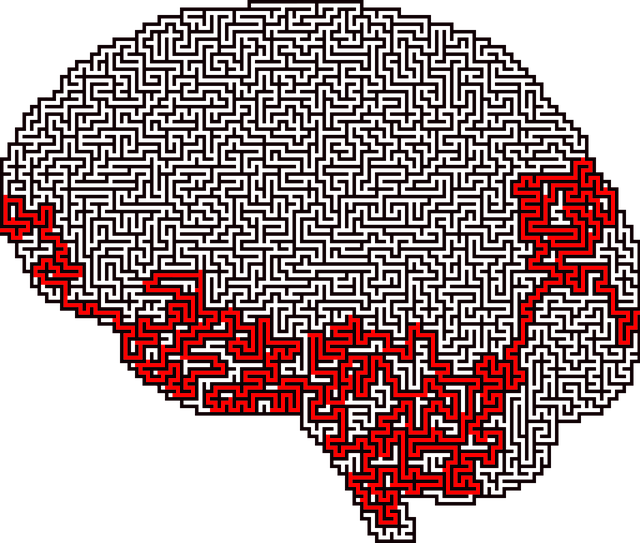Longmont Chronic Pain Therapy utilizes the RFM (Resilience, Frequency, Magnitude) framework for comprehensive patient care. This holistic approach combines cognitive-behavioral therapy, mindfulness and stress reduction to target physical and mental pain aspects. Resilience exercises focus on emotional intelligence, empowering patients with tailored coping mechanisms and Mental Wellness Journaling skills. Standardized assessments and regular monitoring allow therapists to adjust treatment plans based on individual needs. The Community Outreach Program integrates patient feedback and conflict resolution for enhanced well-being and outcomes in Longmont Chronic Pain Therapy.
“Unraveling the power of resilience in chronic pain management, this comprehensive guide delves into the innovative approach of Longmont Chronic Pain Therapy. We explore how RFM (Resilience, Flexibility, and Mastery) exercises can transform patient outcomes. From understanding the core principles to practical implementation strategies, this article offers insights for healthcare professionals. Discover how these exercises enhance coping mechanisms, promote flexibility, and foster mastery over pain. Additionally, we discuss measuring success and tailoring RFM techniques for personalized care, ensuring optimal results in Longmont chronic pain therapy.”
- Understanding RFM and Its Relevance in Chronic Pain Management
- Longmont Chronic Pain Therapy: A Holistic Approach to Resilience Building
- Implementing Resilience Exercises: Strategies for Clinical Practice
- Measuring Success and Adjusting RFM Techniques for Optimal Patient Outcomes
Understanding RFM and Its Relevance in Chronic Pain Management

In the realm of Longmont chronic pain therapy, understanding patient resilience is key to effective treatment. RFM (Resilience, Frequency, and Magnitude) is a powerful framework that helps healthcare professionals assess and enhance patients’ ability to cope with chronic pain. By focusing on these dimensions, therapists can tailor interventions to address not just the physical symptoms but also the emotional aspects of living with chronic pain.
Emotional regulation plays a crucial role in managing chronic pain. Resilience building exercises, coupled with effective communication strategies, enable patients to navigate their pain experiences more adaptively. This approach is particularly relevant as it empowers individuals to manage their pain effectively, improving their overall quality of life. In the context of Longmont chronic pain therapy, RFM offers a holistic perspective that integrates physical and psychological interventions, fostering a more sustainable and meaningful recovery process.
Longmont Chronic Pain Therapy: A Holistic Approach to Resilience Building

In Longmont, Chronic Pain Therapy offers a holistic approach to resilience building, addressing both physical and mental aspects of pain management. This therapeutic method leverages Mind Over Matter principles to empower individuals in their journey towards healing. By integrating various techniques, such as cognitive-behavioral therapy, mindfulness practices, and stress reduction strategies, this program effectively targets not just the symptoms but also the underlying causes of chronic pain. Depression prevention becomes a natural byproduct, as patients learn coping mechanisms that foster mental resilience.
The Longmont Chronic Pain Therapy program takes a comprehensive risk assessment for mental health professionals to tailor interventions for each patient’s unique needs. This personalized approach ensures that every individual receives support that is both effective and sustainable, ultimately enhancing their ability to navigate life’s challenges with greater ease and fortitude. Through this holistic lens, resilience becomes not just a goal but an achievable reality for those dedicated to reclaiming control over their well-being.
Implementing Resilience Exercises: Strategies for Clinical Practice

Implementing Resilience Exercises in Clinical Practice is a strategic approach to empowering individuals, particularly those seeking Longmont Chronic Pain Therapy. These exercises go beyond traditional treatment methods by focusing on mental wellness and emotional intelligence. By incorporating practices like Mental Wellness Journaling Exercise Guidance, therapists can help clients develop coping mechanisms tailored to their unique experiences. This not only enhances resilience but also improves overall well-being.
The process involves teaching skills to navigate and manage difficult emotions effectively. Resilience Building exercises encourage individuals to reflect on their thoughts and feelings, fostering self-awareness. Through regular practice, clients learn to respond rather than react to stressful situations, leading to improved emotional regulation. This proactive approach is beneficial for those dealing with chronic pain, as it empowers them to take control of their mental health alongside their physical treatment.
Measuring Success and Adjusting RFM Techniques for Optimal Patient Outcomes

Measuring success is a vital component of RFM implementation for Longmont Chronic Pain Therapy patients. By setting clear goals and utilizing standardized assessment tools, therapists can objectively evaluate improvements in pain management, function, and overall quality of life. Regular monitoring allows for adjustments to be made in real-time, ensuring that treatment plans remain tailored to individual patient needs. This dynamic approach maximizes the potential for positive outcomes.
Incorporating feedback from patients and their support networks is crucial within this process. The Community Outreach Program Implementation can facilitate open dialogue, revealing areas of success and challenges faced during therapy. Conflict Resolution Techniques and Emotional Intelligence play a significant role in these conversations, fostering understanding and encouraging resilience. Through adaptive RFM techniques, therapists can continually refine interventions, ultimately enhancing patient experiences and outcomes at Longmont Chronic Pain Therapy.
Longmont Chronic Pain Therapy offers a comprehensive approach to managing chronic pain by implementing Resilience, Flexibility, and Mastery (RFM) exercises. This holistic strategy not only provides patients with tools to cope but also enhances their overall quality of life. Through clinical practice, healthcare professionals can effectively guide individuals through resilience-building techniques, allowing them to navigate pain management journeys with newfound strength. By measuring success and tailoring RFM methods, this approach ensures optimal patient outcomes and empowers folks to take control of their well-being.














